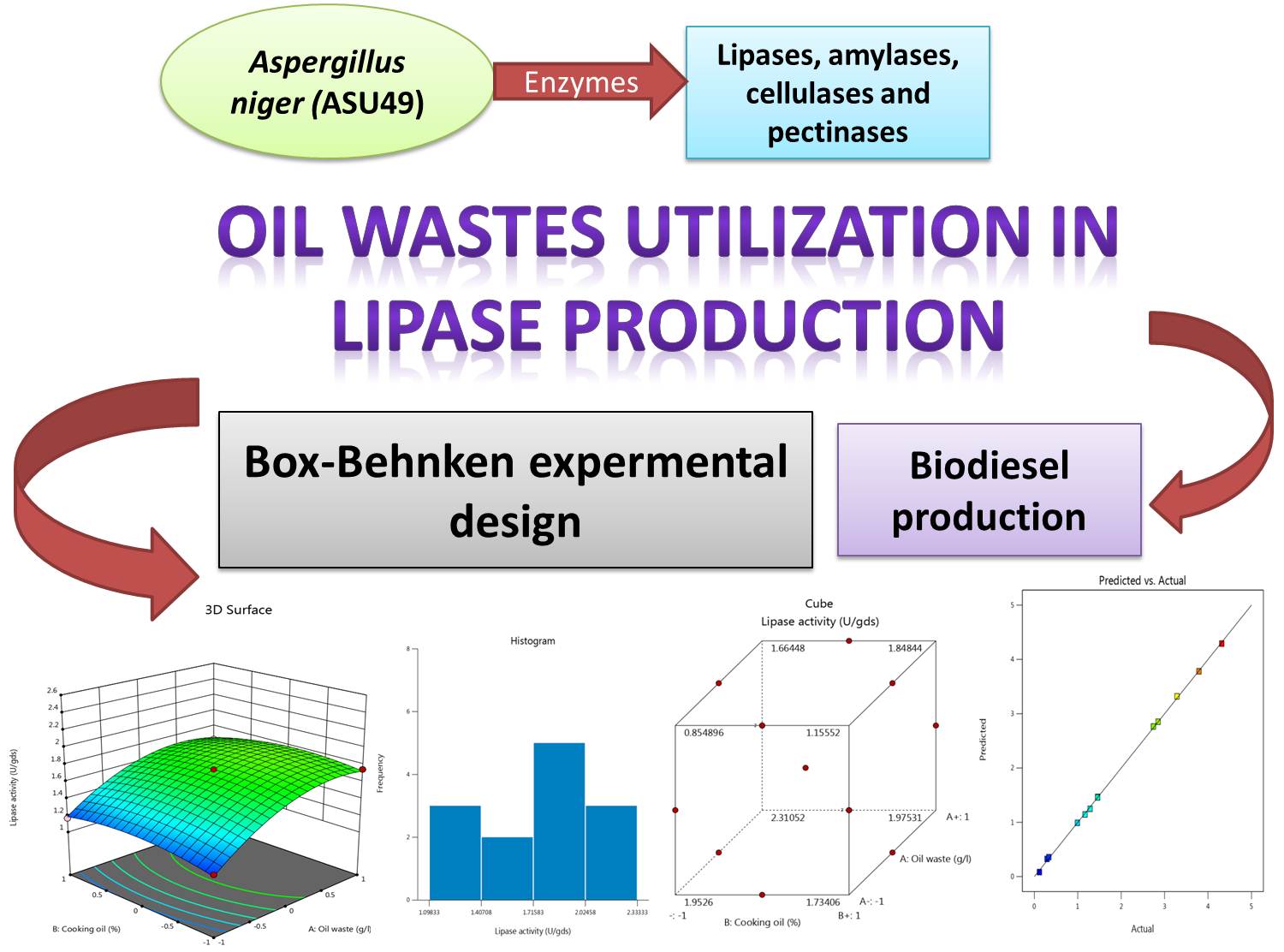- gnest_04287_published.pdf
-
Paper IDgnest_04287
-
Paper statusPublished

Industrial wastes represent a huge issue for the environment and precious materials for microbial growth. Utilizing these wastes in different fermentation process decrease the costs of production, materials, energy, and represent an eco-friendly way of waste recycling. Aspergillus niger (ASU49) is promising isolate produce several hydrolytic enzymes as lipases, amylases, cellulases and pectinases. Lipase enzyme was optimized by Box-Behnken experiential design using coconut, jojoba and cooking oil wastes. Extracted crude lipase enzyme and lypholized one were compared and utilizing in biodiesel production. Coconut and jojoba wastes were promising in lipase production and maximum experimental values of lipase enzyme from both wastes were 4.32, 2.33 U/gds (predicted values was 4.29, 2.36 U/gds for jojoba and coconut wastes, respectively) obtained in run number (3) using Oil waste (2, (0) g/l) (A), Waste cooking oil (0, (-1) %) (B), and Temperature (30, (-1) °C) (C). The design was considerable, and efficacious to clear the interaction between factors; R2 values of lipase activity 0.998, 0.999 and adjusted R2 value 0.993, 0.998 for jojoba and coconut wastes, respectively. Extracted crud lipase (81.95% of total FAMEs) was more efficient than lyophilized lipases (56.14% of total FAMEs) in biodiesel production. Different oil wastes represent excellent sheep, nutritional, and effective sources for enzyme production using solid state fermentation especially with high producing microbial isolates and good optimizing designs.
Total file downloads: 5